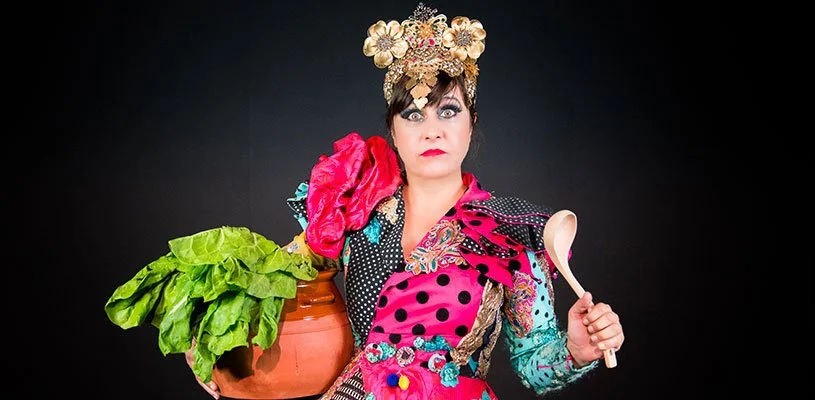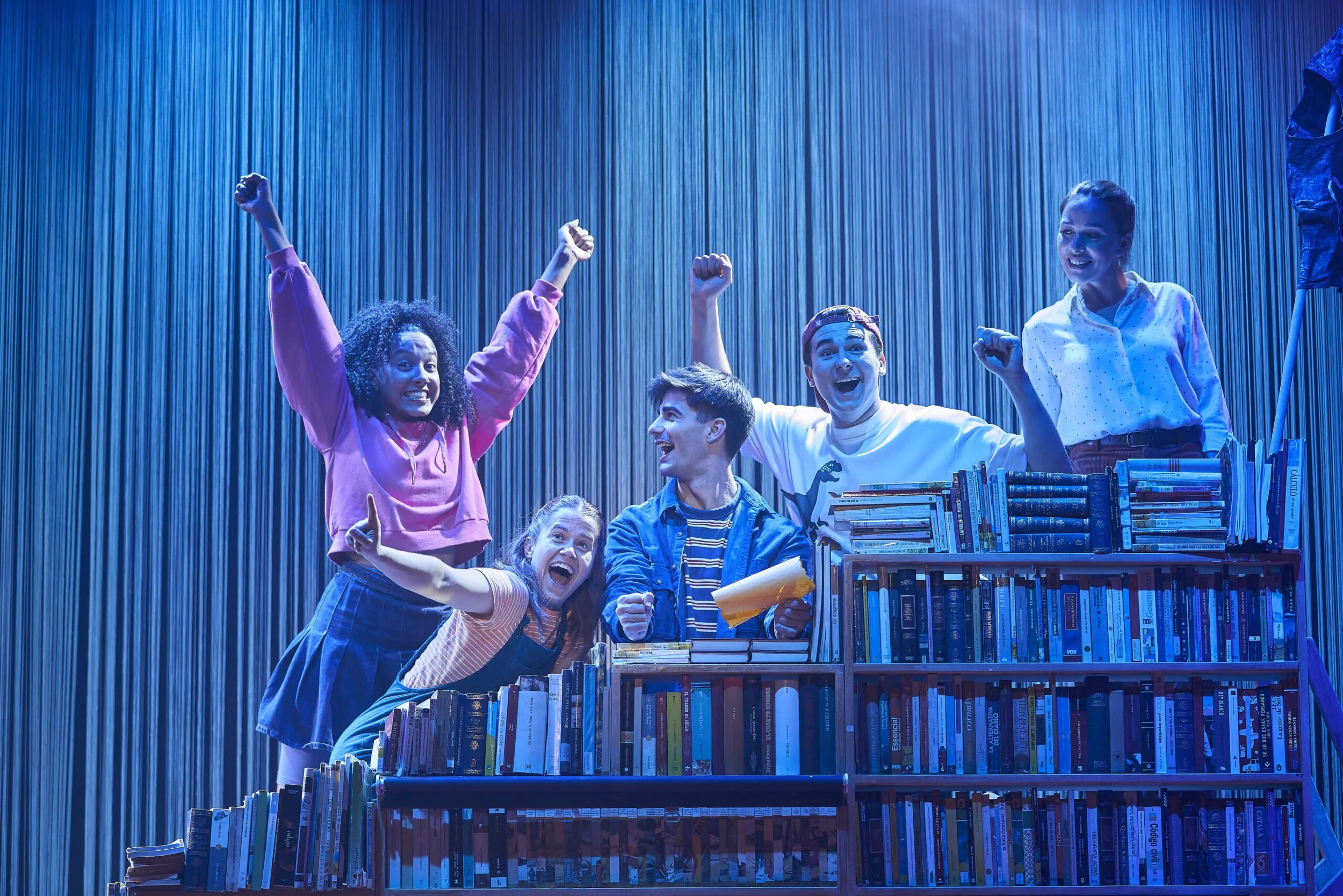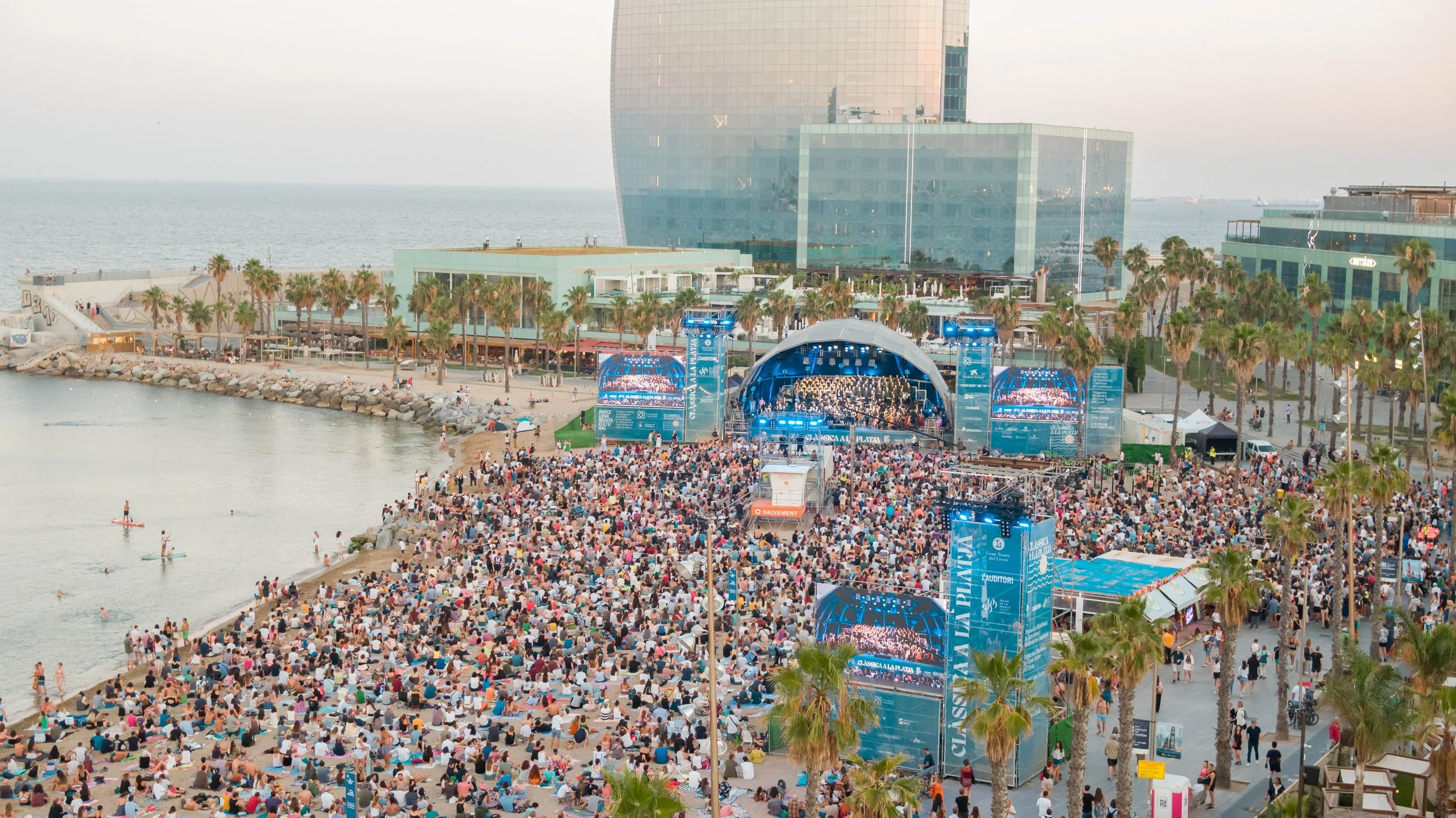Hamlet, Teatre Lliure Review
Photos by Simon GosselinWritten by Laura for Theatre and Tonic
Hamlet - En els plecs del temps is a theatrical adaptation created by Christiane Jatahy. The play has already premiered in Paris and Amsterdam, and it landed in Barcelona for an extremely limited run.
Hamlet is now a woman, forced to relive the same experiences she already went through in the original play. The adaptation blends the original text with new passages; the show being in French makes for a more seamless blend than I believe it would have been in English. Both Ophelia and her father speak in Portuguese, with each other, but also in some of their monologues, which is an interesting take. The subtitles, both in English and Catalan, were projected on the actual stage, which made for a more cohesive watching experience; however, I noticed that both translations were quite different, with the Catalan subtitles much more faithful to the actual dialogues in French.
Jatahy is known for reinventing classics with a combination of theatre and cinema, and the opening scene is a perfect and delightful example of that. In it, we see the king’s ghost appearing on screen right in front of Hamlet, growing as he gets closer to the security cameras. Hamlet rewinds the scene with her remote control and watches as her father, probably the friendliest incarnation of the king’s ghost I’ve ever seen, softly asks her to avenge him. After that, the wedding party takes place: a multitude of people are projected on stage with surprising quality, dancing around and even interacting with the main cast. After that, the projection screen is removed (unfortunately!) and we move onto different cinematic experiences, such as watching what happens behind closed doors through a TV. Watching Claudius lose it during his monologue while sitting on a toilet was quite the experience!
Clotilde Hesme was superb as Hamlet. She brought so much emotion into the character and navigated the original text and the added passages seamlessly. Her monologues were passionate, wild, and thoroughly entrancing. She had amazing chemistry with the cast, but I especially loved her interactions with Tom Adjibi and David Houri, who played Guildestern and Rosencratz. Unfortunately, her Hamlet didn’t really interact with Ophelia, Isabel Abreu, in a meaningful way, which I believe was a huge missed opportunity.
The play’s synopsis seems to want to make a point to mention that Hamlet is now a mature woman. I found this a tad surprising as I did not think she acted more mature than any of the other Hamlets I have seen. Similarly, there seems to be a consensus that Hamlet is now fighting the patriarchy, represented by Claudius; I did not really see much of that either as the story does not deviate that much from the original as to give a unique take on this, aside from a couple of remarks. I do not believe Hamlet being a woman changes much of anything, in fact. It feels as if this choice had barely any repercussions in the show, which is completely fine, but it does seem a bit odd that they bring it up so much during press releases and in interviews.
There is one instance in which Ophelia, right before her supposed death, gives a speech and proclaims she will not die this time, promptly leaving the stage. Then, however, Gertrudis announces her death, and the story progresses the same way with Hamlet and Laertes (who is strangely missing in the play but does appear onscreen) fighting on her grave. I believe Ophelia’s speech, even though perhaps a bit basic, would have been much more impactful if it had actually changed the story in any way.
After that, the story ends abruptly with a monologue from Hamlet; of course, without Laertes, the final confrontation would have been impossible. It felt very brusque, like the author didn’t know how to finish, and left me unsatisfied.
The fact that Hamlet seems to be stuck replaying the same tragedy is also quite confusing. It felt more like a device to turn Hamlet into a woman and to fracture the chronological chain of events rather than something of actual relevance to the plot. Jatahy could have just made Hamlet a woman without any other explanation, or perhaps lean more into the “time loop” aspect of it, which seems like a very interesting idea, definitely worth exploring.
Hamlet - En els plecs del temps was most certainly an interesting experience. There were some very intriguing ideas that never seemed to materialize as the play seemed unable to deviate too much from the original text. Any speech that was added didn’t change the status quo in the grand scheme of things. Granted, changing the ending of Hamlet must be quite terrifying, but I believe it would have served the play’s message much more than leaving it the same.
Catch Hamlet - Dans les plis du temps at the 104 Paris in October of 2024.
★★★















